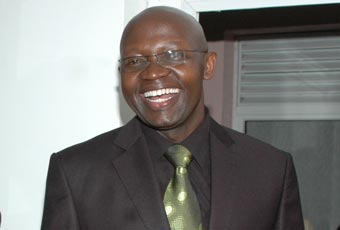
By Patrick Kagenda
Interview with Caleb Owino Managing Director at Fireworks Advertising
What challenges do you face as a manager?
The challenges are myriad and part of the fun that comes with the dynamic industry that advertising is. My greatest challenge is to get and keep the right talent. The industry is competitive with clients demanding more from agencies.
I believe this battle will continue to be won and lost on the talent front. We must also remain cost efficient.
How are you resolving these challenges?
We create a good work environment. In Uganda’s advertising industry, fireworks Advertising is today one of the most attractive employers. We pay well, provide medical cover and training. This has made it possible for us to attract the very best talent in the market. On the cost front, we maintain a high degree of budgetary integrity.
How are you addressing the growing competition?
Fireworks is designed and staffed to deliver world class advertising and public relations services for clients who value their brands. We compete on quality and the market has come to appreciate this especially following our successful launch of the BroadBand Company. What sets us apart from other agencies is our proven ability to develop and execute campaigns that not only stand out but also bring in customers and revenue to the brand. Besides The BroadBand Company, we have worked with clients including DFCU, Chartis, NSSF, Tullow Oil, UBA and Pepsi with whom we launched Mountain Dew and Mirinda Red Apple.
What is your comment on the telecoms companies that have taken to offering advertising services?
This is a trend that will shape the future of advertising. The internet and mobile platforms will command a significant proportion of advertising revenue in the future. There are less than two million TV sets in Uganda, less than 100,000 copies of daily newspapers in circulation, and people have limited access to radio. On the other hand, there are more than 12 million mobile phones which people carry around them all their waking time. Factor in the usage habit that compels us all to never ignore an alert on our mobile phone then you realise how powerful the mobile space can be as an advertising platform. The drawback is that many players are yet to get right the science and art of mobile advertising. Having worked in the mobile sector for seven years, I understand how aggressive the mobile sector can be in its quest for innovative revenue streams. Though they are yet to settle on a solid model, they’ll soon get it right and any advertising agency in the market should be having a game plan for the mobile space. We do.
What is your view of the advertising sector in Uganda with the implementation of the EAC Common Market?
The arrival of the Common Market portends a new era for advertising. A lot will change. But many more will remain the same. Geographical scope will increasingly matter to advertisers. More brands will be seeking economies of scale through regional campaigns. Tusker Project Fame is a great harbinger for things to come. In one swoop, EABL has been able to effectively connect with brand audiences across all the five East African countries. Such brand executions will even be easier with the Common Market. What will remain the same is the need for local insights and competence to understand and develop campaigns that powerfully connect with local audiences in a language they understand. Put differently, a Kenyan will not be able to come to Uganda and run a successful campaign without a strong involvement of a Ugandan team. Tusker Project Fame had a slow start when it was all Kenyan ” from judges to tutors ” and only took off after other nationals were involved.
What new innovations are coming up at Fireworks Advertising?
We have segmented the market and what comes out strongly is that many clients are not getting what they need. Fireworks Advertising has developed tailored packages for different segments and will soon be launching special services for clients especially the mid-sized businesses to whom brand image is key but has so far remained beyond budgetary reach.
What is your style to successful management and who are your mentors to successful management practices?
Somewhere along my managerial journey, I learnt that there is no such thing as the perfect management style. What is important is to be consistent and in so doing, create a stable environment where everybody knows and appreciates the rules of engagement. For me, it’s a mix of free exchange of ideas at the planning stage and firm execution of what has been agreed upon. For those I work with, I leave little room for guess work. Jack Welch and the late C.K. Prahalad have been of great inspiration.
When do you start your day?
I’m usually up by 5.45am. Since I rarely make it home early enough to see the kids, I supervise their preparations for school in the morning, from waking them up to the showers and dressing up. We then have breakfast together to be out early enough for the morning drive to school before I go the office. Am often in and ready to start the day before 8am.
 The Independent Uganda: You get the Truth we Pay the Price
The Independent Uganda: You get the Truth we Pay the Price





